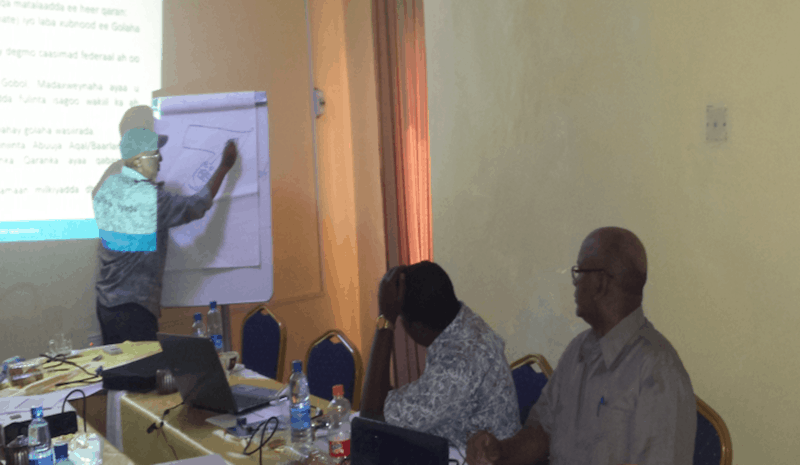Max Planck Foundation organises thirteenth workshop for members of the Somali Boundaries and Federation Commission
On 15 September 2016, the Max Planck Foundation organised a workshop for the Somali Boundaries and Federation Commission on the role of courts in the resolution of intergovernmental disputes. The workshop is part of a series of knowledge building trainings by the Max Planck Foundation and was attended by all nine members of the Boundaries and Federation Commission.
Somalia faces a number of constitutional questions with regard to the structuring of its judiciary. Of particular importance is the establishment of a constitutional court, which is mandated to adjudicate disputes between the Federal Government and Federal Member States and among Federal Member States. As an entirely new institution in the country, actors and institutions need to gain a better understanding of the role of constitutional courts in federal systems in general, particularly their mandate and jurisdiction as well as the appointment procedures for judges at the constitutional court.
The Max Planck Foundation’s Technical Advisor initiated the workshop presentations by providing comparative models of judicial hierarchy in federal systems around the world and proceeded to question participants about possible models for the Somali context. Theoretical discussions concerning the role of judges as opposed to the role of members of Parliament as well as on judicial and administrative jurisdictions and their relevance for the demarcation of administrative boundaries ensued. With the facilitation of the Max Planck Foundation’s Technical Advisor, Commissioners were able to formulate practical implications for the work of the Commission.
The workshop forms the thirteenth workshop delivered under the Max Planck Foundation’s project “Support to the Somali Federalisation Process”, which is financed by the German Federal Foreign Office.

